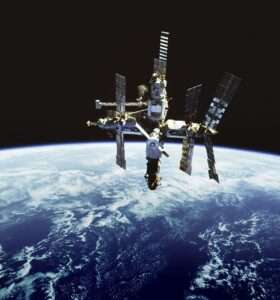The Russian space program, once a symbol of pride and scientific achievement, now finds itself grappling with the repercussions of President Vladimir Putin’s invasion of Ukraine. The conflict has had significant implications for Russia’s space endeavors, causing disruptions and raising concerns about the future of its space missions. In this article, we explore the challenges and uncertainties that Russia’s space program currently faces.

Russia’s space program is reeling from the impact of the country’s invasion of Ukraine. The sanctions imposed on Russia have made it difficult for the country to obtain the parts and technology it needs to launch rockets and satellites. As a result, Russia has had to cancel or delay a number of space missions.
Impact on Launch Schedules
The invasion of Ukraine has resulted in disruptions to Russia’s space launch schedules. Several planned missions have been delayed or put on hold, as the nation’s focus shifted towards the conflict and its aftermath.
International Collaboration Concerns
Russia’s space program has been actively involved in international collaborations, including joint missions and partnerships with other space agencies. However, the geopolitical tensions resulting from the invasion have raised concerns among international partners about the future of these collaborations.
Financial Constraints
The conflict and the subsequent imposition of sanctions on Russia have further strained its economy, impacting funding for space missions. Financial constraints may affect the development and execution of ambitious projects within the space program.
Talent Retention and Brain Drain
The instability caused by the conflict has led to concerns about talent retention within the Russian space industry. Skilled scientists and engineers may seek opportunities abroad, contributing to a potential brain drain that could hamper the program’s progress.
International Space Station (ISS) Involvement
Russia’s role in the International Space Station (ISS) has been a key aspect of its space program. However, uncertainties arising from the geopolitical situation have raised questions about its future involvement in the ISS and its impact on international cooperation in space exploration.
Path to Recovery
As Russia’s space program navigates through these challenges, the path to recovery remains uncertain. The nation’s space agency, Roscosmos, will need to address the repercussions of the conflict and work towards rebuilding international partnerships and securing funding for future missions.

Russia’s space program is reeling from the impact of the country’s invasion of Ukraine. The sanctions imposed on Russia have made it difficult for the country to obtain the parts and technology it needs to launch rockets and satellites. As a result, Russia has had to cancel or delay a number of space missions.

The aftermath of President Putin’s invasion of Ukraine has sent shockwaves through Russia’s space program, causing disruptions, financial constraints, and concerns about talent retention and international collaborations. As the nation grapples with the impact of geopolitical tensions, the future trajectory of its space program hangs in the balance. Only time will tell how Russia’s space agency will overcome these challenges and reclaim its position as a significant player in the realm of space exploration.
